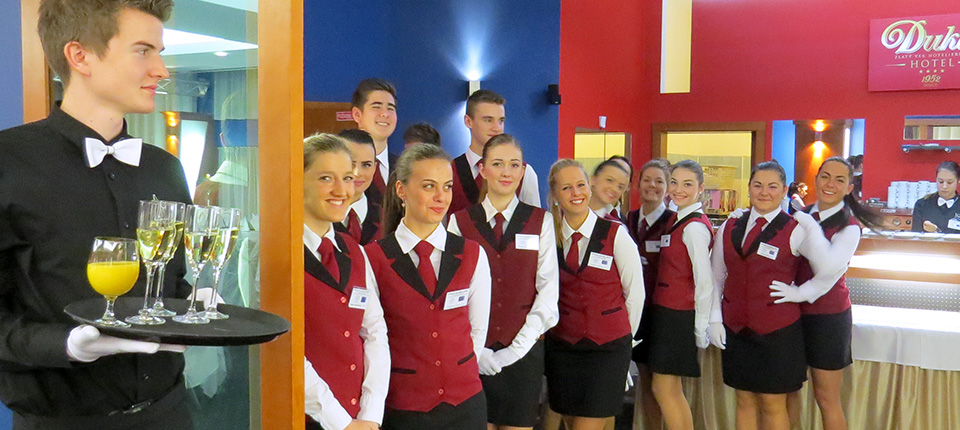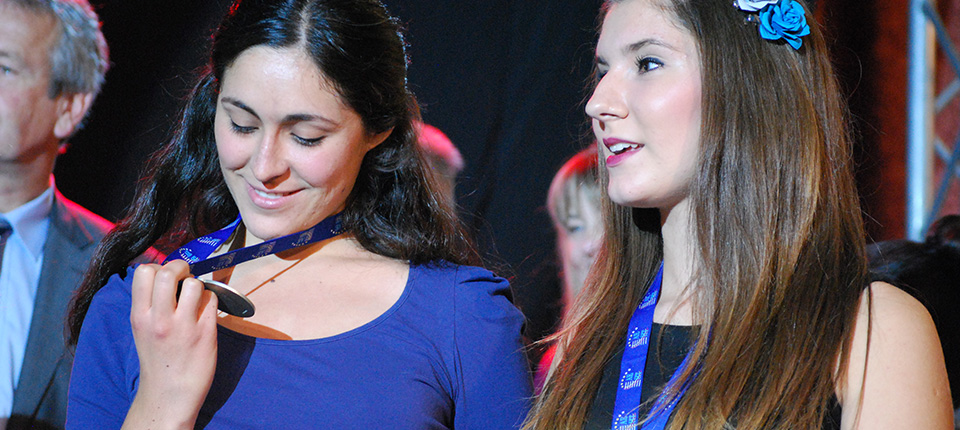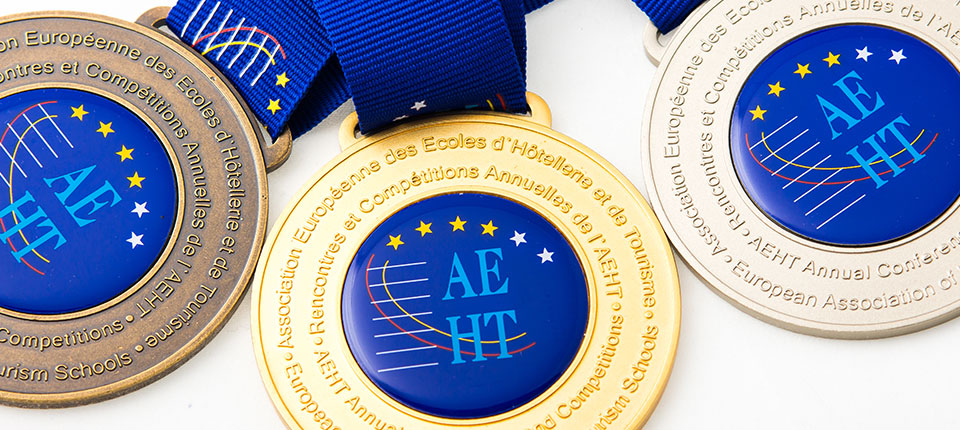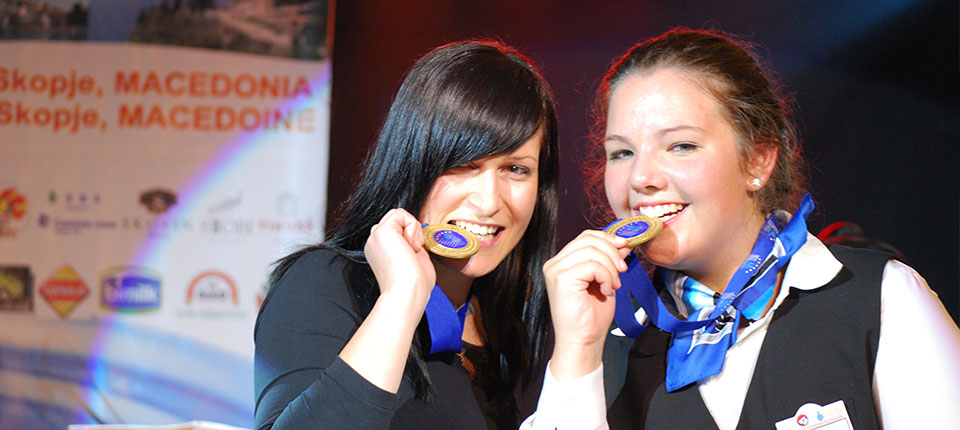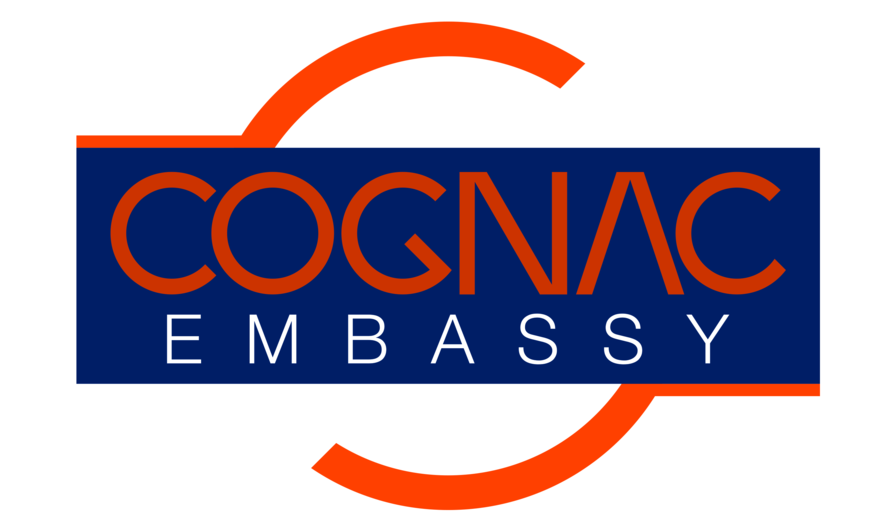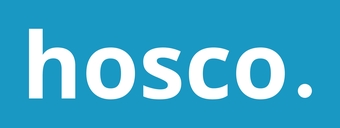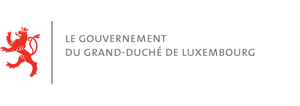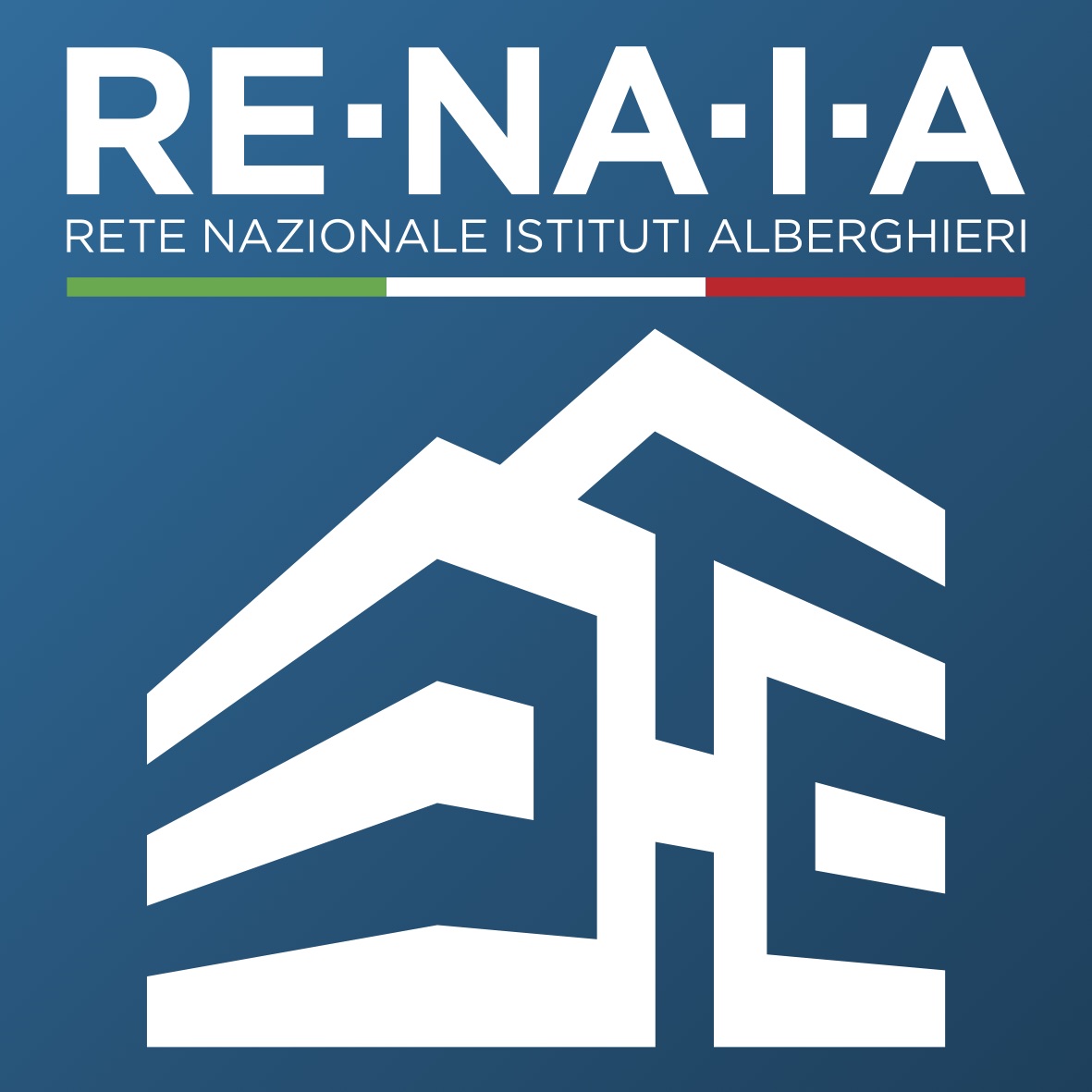Theme in 2019: sustainability in hospitality and tourism
The initiative of offering an academic program to professionals - managers, teachers and school principals - during the annual event has been launched for the first time with success in 2018 in Leeuwarden and can be seen as the starting point of a new AEHT activity. A conference on Trends and innovation in hospitality and tourism was held by Steve Hood, the Director of the STR SHARE Center, a company which provides data-driven solutions that empowers business in hospitality to the assistance of the General Assembly.
The Presidium after this first experience decided to offer in future a more consistent program in the context of the AEHT activities and launched the concept of an AEHT Academy. Based on this premises, a second edition was organized in 2019 during the annual event in Split from November 12th to November 16th. The theme of the conference was Sustainability in hospitality and tourism.
One has to know that the objective of AEHT Academy is to enhance the attractiveness for directors, teachers and principals to join the major event of AEHT which is traditionally dominated by the competitions with the large presence of students and teachers but also the General Assembly of AEHT where the country delegates participate. This original but very useful model has made the success of AEHT from its beginning on.
Guests who enrolled for the Academic program could only arrive on Wednesday 13th and leave on Saturday 16th of November. By doing so, they had the possibility to assist partially at the competitions. A guided visit gave them the possibility to better know the conditions of the competitions. The main part of the academic program took place on Friday the 15th of November 2019 at the University Campus Split and gave possibility to the participants to assist at the gala dinner which is a very impressing moment at the end of the annual event where the enthusiasm of students and teachers demonstrated once more that AEHT is certainly one of the best hospitality and tourism networks in Europe.
This year we had the opportunity to put in the light of attention three prestigious speakers.
Ray Cullum, Vice-president of AEHT, presented the three speakers and gave the obligate academic touch to the following presentation of the three keynotes.
The subject of Dr Irena Ateljevic, Foundress of SHE – Sibenik Hub for Ecology (social enterprise), Scientific Associate, Institute for Tourism was:
Transforming our (tourism) world: How to walk our sustainability talk?
Abstract: Reflecting the rapidly changing world, the ‘transformative travel and tourism’ concept has become a new buzzword of tourism studies discourse in the last few years. Proposed as a potential means of making the world a better place it has claimed to create conditions conducive to personal and social transformation necessary for a radical worldview change. In this keynote Dr Irena Ateljevic provided an insight into the 4-year long project that has focused its theoretical and empirical research on the transformative potentials of tourism. More specifically, she focused on social entrepreneurs who use their tourism enterprises as a way to live the values they believe in as they search for true life meaning and purpose in a society that is captivated by values and beliefs that are assaulting the Earth’s life-systems and collapsing society in upon itself. In her ethnographic storytelling Dr Irena Ateljevic exposed with passion inherent challenges, trials and contradictions between talking the walk and walking the talk of (tourism) sustainability.
From resources to sustainable destination products by Lidija Petrić, PhD was the second intervention and can be characterized as an ambitious academic reflection and stimulation.
Abstract: In the economic theory resources represent basis for an economic development; however, they are not products per se, unless they have a potential to satisfy human needs. Tourism utilizes many resources, turning them into products able to fulfill different tourists' needs. From the perspective of a destination this, so called commodification process is not an easy task as it requires coordination and cooperation of many stakeholders whose ultimate goal should be development of sustainable destination products. This presentation discusses not just basic prerequisites for the success of the commodification process but also suggests 10 steps to follow to achieve the stated goal.
Gregory Tugendhat, MA, Founder and Managing Director of RegiÔtels, had the pleasure and the challenge to open the afternoon session. His keynote was entitled: The example of RegiÔtels: how to relaunch old-fashioned hotels in a context where circular economy and sustainability are prevailing.
Regional hospitality is suffering from a number of issues. A lack of profitability and an inability to stimulate new demand makes it difficult to recruit, renovate and ensure relevancy in a digital world. While there is a lot of talk about sustainable tourism from an ecological perspective, there appears to be little mention of making tourism sustainable – ensuring that the hotels in the countryside actually exist in five, ten- and fifteen-year’s time. The economic impacts of regional hospitality are uncontested, from the supporting of local jobs to the economic benefits to local commerce. Regional hospitality is facing a crisis with hoteliers unable to generate the returns necessary to ensure continuity, encouragement of the next generation to take over or simply unable to support the business and take a salary. By adopting a combination of methods common to larger chain hotels it is possible to generate returns sufficient to explore other options for ensuring the duration of the business – one such method being actively explored in Luxembourg is the renovation of hotel rooms using circular economy principles. Fostering relationships with regional and local suppliers, there is a new trend that is gaining ever-more importance relating to how to create a durable and compelling environment for those seeking an experience that is both original and out of the ordinary.
A roundtable closed the second edition of the AEHT Academy. As lessons learnt, one might pick out the following observations:
There is a strong interest in an Academic program within the AEHT. More than 30 inscriptions have been recorded in 2019 but the challenge remains with the combination of a parallel program as participants do not want to choose between agenda items but want to combine the different parts of the program. A critical voice by a student or pupil (Youth Parliament of AEHT) will enhance dynamic and relevance from a different perspective. From a content point of view, efforts will be put on IT and circular economy in a next edition. Communication will be developed by recording the presentations and summaries will circulate in advance.
The challenge in 2020 will be to combine competitions and Academic program in a more coherent way. The Academic program will stay innovative and pedagogic and will not be transformed in a more research-oriented activity as the link with school professionals has to be kept for the expected added value.
The success of the Academic program in Split in 2019 was largely due to the excellent cooperation with the organizer. In this context, I want to transmit my gratitude specially to Andrea Bilandžić who put a lot of efforts in the preparation in a very efficient way
Thanks a lot for all of the contributions and hope to see you soon in Aveiro in 2020.
Michel Lanners



